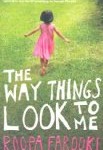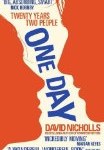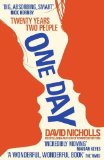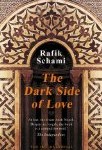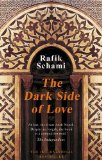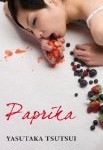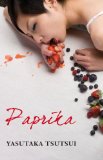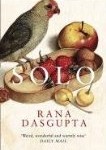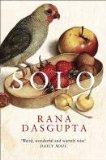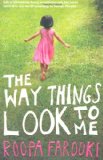 Long Listed for 2010 Orange Prize
Long Listed for 2010 Orange Prize
The Way Things Look To Me is a simple story about how a brother and sister cope when the death of their mother forces them to care for their little sister, Yasmin, who has Asperger’s syndrome.
The book switches between the viewpoints of the three siblings, showing us their thoughts and frustrations as they try to adapt to their new lives. I was impressed by the distinct differences in their voices and found Yasmin’s narration to be a realistic example of how a person with Asperger’s speaks.
My name is Yasmin Murphy, and sometimes I am so full of things to say that I’ll feel that I’ll burst if I can’t get them out, and will talk, and talk, and talk until I can see people fidget and move uncomfortably
Yasmin is also supposed to have synesthesia, a condition which means that you see words and numbers as distinct colours. I didn’t understand why this was introduced to the book as it was never investigated properly and seemed an unnecessary addition to the plot.
The book was easy to read and contained a few emotional sections, but I felt it lacked something. I think that reading this book so soon after reading Born on a Blue Day was a big disadvantage for it. The two books both mention Asperger’s and synesthesia, but Born on a Blue Day made me feel as though I understood what it was like to have the conditions. The Way Things Look to Me was mildly entertaining, but didn’t have that same deep insight.
Recommended if you are looking for a quick, entertaining read with a bit of emotion, but if you are after any real insight into Asperger’s then I’d look elsewhere.
The thoughts of other bloggers:
Each of the three characters is multi-dimensional and written with great sensitivity and insight. Curious Book Fans
It is very difficult to dislike Roopa Farooki’s novels. They are as eager to please as puppies, and who doesn’t like puppies, at least hypothetically? Eve’s Alexandria
…this neurotypical enjoyed it immensely. Roopa Farooki knows how to write. Action for Autism
Note: Im aware I’ve broken my New Year’s Resolution in finishing a 3.5 star book, but I’m making exceptions for books about Asperger’s.
